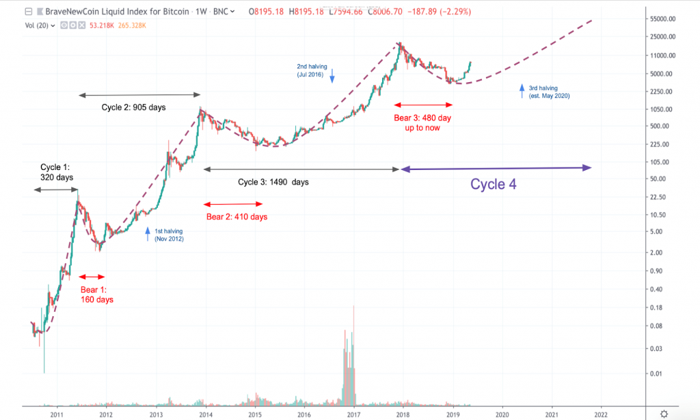The Swiss National Bank Bitcoin debate has gained significant attention as the central bank remains firm in its stance against incorporating bitcoin into its reserves. During a recent statement, SNB President Martin Schlegel emphasized the liquidity and volatility risks associated with holding such cryptocurrencies, sparking discussions about the role of central banks in the evolving digital asset landscape. Despite the Bitcoin Initiative’s advocacy, which highlights the potential for enhanced returns with minimal risk by including a small allocation of bitcoin in the Swiss National Bank’s investment portfolio, the response has been cautious. The contrasting views on bitcoin investment underscore the tension between traditional financial systems and the burgeoning cryptocurrency market. With many central banks, including the SNB, wary of bitcoin’s volatility risks, the future of cryptocurrency integration into national reserves remains uncertain.
The ongoing dialogue surrounding the integration of bitcoin within the Swiss National Bank’s financial framework reflects broader trends in the global cryptocurrency market. Discussions about central banks and digital currencies have intensified as the Swiss National Bank contemplates its position amidst rising interest from financial innovators. Advocates argue for the merits of including digital assets like bitcoin in treasury strategies, yet others raise concerns regarding the inherent risks tied to these volatile investments. As central banks worldwide evaluate their policies on cryptocurrencies, the potential impact on national and regional economic stability cannot be overlooked. This situation illustrates the balancing act central banks face between innovation and risk management in today’s financial environment.
Swiss National Bank’s Stance on Bitcoin Reserves
The Swiss National Bank (SNB) has firmly rejected calls to incorporate bitcoin into its reserves, emphasizing the liquidity and volatility risks associated with such a decision. SNB President Martin Schlegel recently stated that while the idea has been presented by advocates like the Bitcoin Initiative, the potential benefits of including bitcoin might not outweigh the inherent risks. The institution prioritizes stability and predictability in its investment strategy, and the unpredictable nature of bitcoin, along with its notorious price fluctuations, raises concerns.
Despite the Bitcoin Initiative’s claims that a small allocation of bitcoin could have potentially enhanced the SNB’s investment portfolio and returned approximately 10%, the central bank remains cautious. The SNB’s existing strategy has proven effective, generating consistent returns over the years without the complications introduced by bitcoin volatility. By focusing on more stable assets, the SNB aims to uphold its reputation as a reliable financial entity.
Bitcoin Volatility Risks and Their Implications
Bitcoin’s volatility is often misunderstood when analyzed without a comprehensive view of its overall impact on an investment portfolio. The Bitcoin Initiative argues that once integrated responsibly, bitcoin can function as a stabilizing force during turbulent market times and should not be dismissed due to its price swings alone. In fact, the Initiative points out that during moments of market stress, bitcoin’s resilience has frequently allowed it to sustain high liquidity, which could justify its inclusion in a diversified portfolio.
However, concerns about volatility remain central to the SNB’s rationale against adopting bitcoin. The risk of substantial price drops, as evidenced by historical data, presents a dilemma for central banks aiming for fiscal prudence. Many policymakers and financial institutions prioritize minimizing exposure to high-volatility assets, as the associated risks can lead to significant liquidity issues and affect overall economic stability.
The Role of Central Banks and Bitcoin Investment
As central banks worldwide grapple with the idea of integrating cryptocurrencies like bitcoin into their official reserves, the Swiss National Bank’s approach sheds light on broader economic considerations. The debate extends beyond individual asset volatility and touches on issues of monetary policy, public trust, and financial stability. While some nations explore strategic bitcoin stockpiles, Swiss authorities display caution, possibly influenced by political motivations and existing economic ties with the European Union.
The reluctance of central banks, including the SNB, to adopt bitcoin reflects a significant trend in the global economy. Many institutions are hesitant to embrace cryptocurrency due to concerns about regulatory frameworks, market manipulation, and the potential for bitcoins to undermine traditional financial systems. As the landscape evolves, the conversation surrounding central banks and their stance on digital currencies will likely continue to intensify, prompting further scrutiny of the benefits and risks associated with bitcoin.
Swiss National Bank’s Indirect Exposure to Digital Assets
Interestingly, while the SNB may not directly hold bitcoin, it has indirect exposure through its investments in various companies that possess significant bitcoin reserves. For instance, it has shares in firms like Tesla and Marathon Digital Holdings, which are known for holding considerable amounts of bitcoin. This indirect involvement reflects a growing trend among institutional investors who recognize bitcoin’s potential while maintaining traditional investment structures.
This strategy of indirect investment allows the SNB to participate in the potential growth of the cryptocurrency market without exposing itself directly to the inherent risks associated with bitcoin ownership. By investing in established companies with solid reputations in the bitcoin ecosystem, the Swiss National Bank can balance its investment portfolio while remaining cautious about direct cryptocurrency investments.
The Impact of the Bitcoin Initiative’s Advocacy
The Bitcoin Initiative’s proposals highlight a rising push for the Swiss National Bank to reconsider its position on bitcoin. By promoting research that suggests bitcoin can bolster portfolio performance with manageable risk, the Initiative aims to influence public perception and policymaking. Advocates believe that integrating bitcoin could modernize the Swiss financial framework and position the nation as a leader in cryptocurrency adoption among central banks.
Despite these efforts, the SNB remains steadfast in its refusal, viewing the proposals through a lens of prudence and risk management. The relationship between innovative financial technologies and traditional banking protocols is complex. As proponents argue for bitcoin’s place in national reserves, the SNB must carefully evaluate both the potential upsides and the substantial downsides of such a strategic shift.
Technological Advancements and Central Bank Digital Currencies
In the arena of financial technology, the Swiss National Bank is pioneering projects that leverage central bank digital currencies (CBDCs) for payments across financial institutions. This initiative allows the bank to explore the capabilities of digital currencies without assuming the risks associated with cryptocurrencies like bitcoin. By investigating CBDCs, the SNB aims to enhance payment efficiency while maintaining control over monetary stability.
This focus on technological advancements highlights a balanced approach between adopting innovations and safeguarding traditional financial principles. While bitcoin remains a contentious issue, the advancement of CBDCs may provide a more stable alternative for central banks, allowing them to adapt to the changing financial landscape without facing the same volatility challenges presented by cryptocurrencies.
Comparative Analysis: Global Central Bank Approaches to Bitcoin
The Swiss National Bank is far from alone in its scrutiny of bitcoin as a viable reserve asset. Central banks around the world exhibit a wide range of perspectives on cryptocurrency, with varying degrees of acceptance and caution. Notably, European Central Bank President Christine Lagarde has openly criticized bitcoin, underscoring its speculative nature and potential ties to money laundering. Such sentiments resonate across many global financial institutions, creating a cautious consensus against bitcoin as a reserve choice.
In stark contrast, certain nations are taking bold steps toward bitcoin adoption, basing their strategies on the need for strategic reserves amidst shifting economic dynamics. Countries like El Salvador have embraced bitcoin at a national level, showcasing a decidedly different stance than traditional financial institutions. This disparity reflects ongoing debates surrounding the legitimacy and practicality of bitcoin as a legitimate component of a central bank’s reserve strategy.
Political Influences on the Swiss National Bank’s Decisions
Political motivations play a significant role in how the Swiss National Bank navigates the complicated landscape of bitcoin and cryptocurrency. With Switzerland’s delicate relationship with the European Union, incorporating bitcoin into the reserve could be perceived as a challenge to EU monetary policies, potentially straining these political ties. This concern is amplified by the fears that adopting a digital currency might lead to an erosion of trust in traditional currencies.
As political climates shift, so too might perceptions of cryptocurrencies among central banks. For the SNB, the decision to remain on the sidelines regarding bitcoin reveals a careful weighing of both economic conditions and political ramifications, showcasing the complicated interplay between financial stewardship and political strategy in national policies surrounding digital assets.
Future Prospects: Swiss National Bank and Financial Innovation
Looking ahead, the SNB’s disciplined approach toward bitcoin and cryptocurrencies suggests a long-term vigilance regarding any shifts in the financial landscape. As technological innovation continues to evolve, alongside increasing public interest in digital currencies, the central bank may need to reassess its strategy. The ongoing development of central bank digital currencies might reflect a new era of financial instruments that could one day coalesce with traditional assets.
The role of central banks in the future of finance will likely encompass a blend of caution and adaptive strategies to integrate digital assets where appropriate. How the SNB maneuvers through these coming changes will be pivotal, as it seeks to uphold its mandate while navigating through emerging financial technologies and the popularization of alternatives like bitcoin.
Frequently Asked Questions
What are the Swiss National Bank’s views on bitcoin reserves?
The Swiss National Bank (SNB) has expressed concerns over adding bitcoin to its reserves, citing liquidity and volatility risks. President Martin Schlegel emphasized that bitcoin’s unpredictable price swings could adversely affect Switzerland’s financial stability, despite some advocacy suggesting it could enhance the central bank’s investment portfolio.
Why did the Swiss National Bank reject calls to invest in bitcoin?
The SNB’s rejection of proposals to invest in bitcoin stems from concerns about the asset’s volatility risks and liquidity issues. The central bank prefers to maintain a stable investment portfolio, and SNB President Martin Schlegel pointed out that past investments have yielded significant returns without exposure to cryptocurrency.
What are the potential benefits of including bitcoin in the Swiss National Bank’s portfolio?
Proponents, such as the Bitcoin Initiative, argue that allocating a small percentage of bitcoin could enhance the SNB’s portfolio performance and potentially double returns with minimal volatility increase. They assert that bitcoin’s liquidity and resilience during market turbulence make it an attractive asset for diversification.
How does the Swiss National Bank’s investment strategy relate to bitcoin?
While the Swiss National Bank does not hold bitcoin directly, it has indirect exposure through shares in companies that own bitcoin reserves. This strategy allows the SNB to benefit from the cryptocurrency market without the direct risks associated with holding bitcoin itself.
What are the risks associated with bitcoin investment from a central bank’s perspective?
Central banks, including the Swiss National Bank, view bitcoin as a highly speculative asset. Key risks include significant volatility, potential liquidity issues during market downturns, and regulatory scrutiny related to money laundering and other illicit activities.
How does the Swiss National Bank compare to other central banks regarding bitcoin adoption?
The Swiss National Bank is cautious about bitcoin, similar to the European Central Bank and the Federal Reserve, which have dismissed the idea of integrating bitcoin into their reserves. While some countries are exploring bitcoin stockpiles, the SNB remains resistant to this approach due to perceived financial risks.
Is the Swiss National Bank considering central bank digital currencies in relation to bitcoin?
Yes, the Swiss National Bank is piloting a project aimed at utilizing central bank digital currencies (CBDCs) for interbank payments. This initiative reflects the SNB’s interest in digital currencies while maintaining a cautious stance towards directly holding bitcoin.
What is the relationship between bitcoin volatility and overall investment dynamics for the Swiss National Bank?
The Bitcoin Initiative advocates for analyzing bitcoin’s volatility in the context of its overall impact on an investment portfolio. They suggest that strategic inclusion of bitcoin could mitigate overall volatility and enhance returns, which contrasts with the SNB’s conservative approach to portfolio management.
How could Switzerland’s geopolitical considerations influence its stance on bitcoin?
The Swiss National Bank’s reluctance to adopt bitcoin could be politically motivated, as doing so might signal distrust in other currencies and affect Switzerland’s relations with the European Union. This geopolitical dimension complicates the discussion around incorporating bitcoin into national reserves.
What role does bitcoin play in modern financial systems from the Swiss National Bank’s perspective?
According to SNB President Martin Schlegel, bitcoin poses unique challenges as a financial asset. While some view it as a burgeoning part of modern financial systems, the SNB remains cautious, emphasizing the importance of stability and security in central banking operations.
| Key Point | Details |
|---|---|
| SNB President’s Stance | Martin Schlegel expressed concerns over liquidity and volatility risks associated with owning bitcoin. |
| Bitcoin Initiative’s Argument | The Initiative believes that incorporating bitcoin could enhance the Swiss treasury portfolio and provide substantial returns. |
| Current Investment Performance | The SNB’s investments have increased by around 10% since 2015, and a mere 1% allocation to bitcoin could have significantly boosted these returns. |
| Concerns About Political Motivations | The Bitcoin Initiative suggested that the SNB’s reluctance could be politically motivated, fearing a loss of trust in fiat currencies. |
| International Perspectives | Other central banks, like the European Central Bank and the Federal Reserve, show similar hesitance towards bitcoin due to regulatory concerns and financial stability. |
| Indirect Bitcoin Exposure | The SNB does have indirect exposure through shares in companies with bitcoin reserves. |
| Technological Initiatives | The SNB is exploring central bank digital currencies to improve interbank payment systems. |
| Contrasting Approaches | Contrarily, the U.S. government is establishing a strategic bitcoin reserve, highlighting divergent global approaches to cryptocurrency. |
Summary
The Swiss National Bank Bitcoin conversation revolves around the institution’s refusal to hold bitcoin within its reserves. Despite arguments from the Bitcoin Initiative highlighting potential benefits, the SNB prioritizes financial stability and poses significant concerns regarding liquidity and volatility associated with cryptocurrencies. As the debate continues, the SNB remains committed to exploring alternative digital currency innovations while observing international policies, which foster a cautious yet evolving stance on digital assets.
The Swiss National Bank Bitcoin debate has ignited fervent discussions among financial experts and policy makers alike. Recently, SNB President Martin Schlegel firmly rejected proposals to add bitcoin to the bank’s reserves, citing concerns about liquidity and significant volatility risks associated with cryptocurrency investments. Proponents of incorporating bitcoin into the Swiss National Bank’s portfolio argue that it could enhance overall returns without drastically increasing risk; however, Schlegel’s stance highlights the cautious approach central banks often take regarding new digital assets. With the rise of bitcoin’s popularity worldwide, central banks are grappling with the implications of including cryptocurrencies in their investment strategies, further complicating discussions around bitcoin volatility risks and regulatory challenges. The ongoing dialogue emphasizes the need for a balanced assessment of potential benefits and drawbacks, particularly for institutions like the Swiss National Bank, known for its historically conservative financial practices.
The ongoing conversation surrounding the adoption of virtual currencies by monetary authorities is particularly relevant as central banking evolves. Terms such as “central banks and cryptocurrency” are increasingly common in discussions about modern finance, with entities like the Swiss National Bank considering their positions on assets like bitcoin. While some advocates highlight the potential benefits of adding bitcoin to national reserves, others point to the inherent risks, emphasizing the necessity for a thorough evaluation of bitcoin investment portfolios amid market volatility. The Swiss National Bank’s cautious stance reflects broader trends observed among global financial institutions navigating the complexities of digital assets. As the landscape continues to shift, the relationship between traditional banking frameworks and emerging cryptocurrencies remains a focal point of economic discourse.














